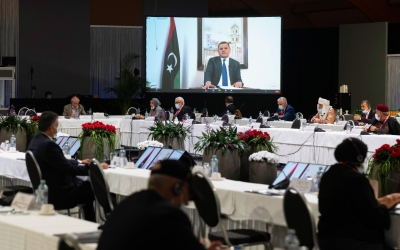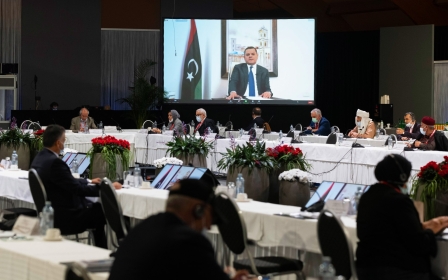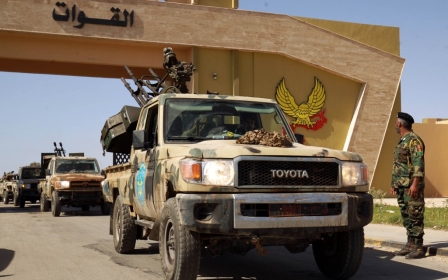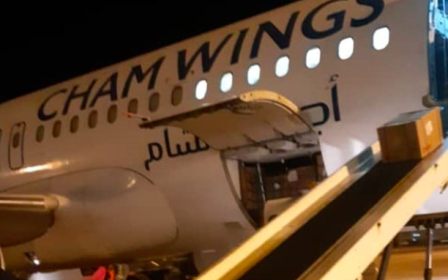New Libyan interim unity government met with cautious optimism
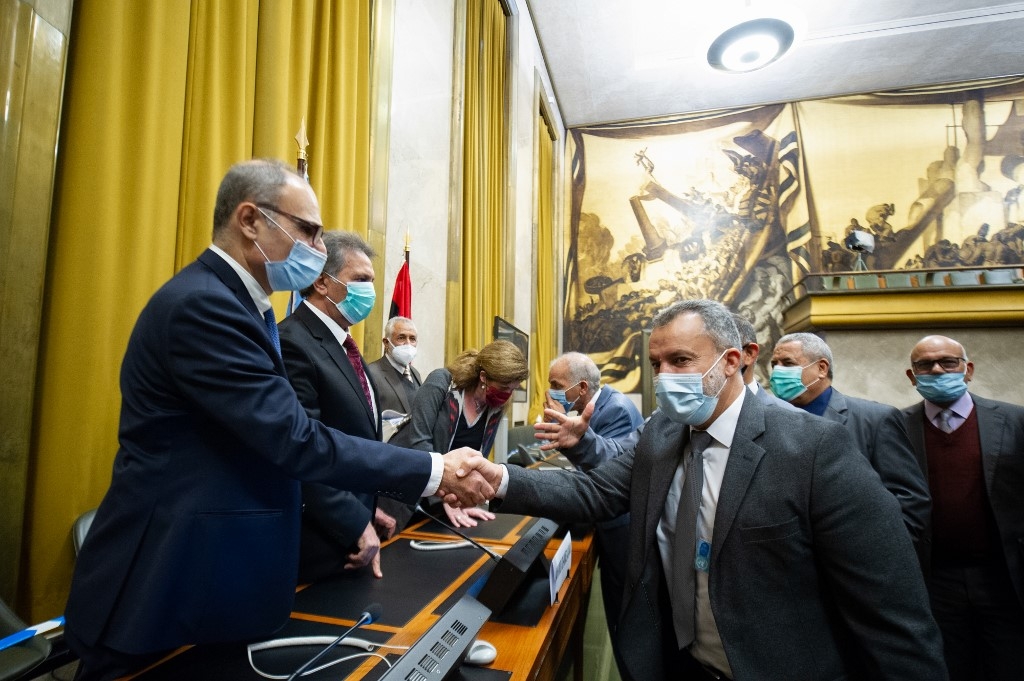
Libya's Tobruk administration welcomed Friday's announcement of a new interim government to unite the country, but added it would only cede power if the eastern-based parliament approved.
Libya has been split between east and west since 2014, with the internationally recognised Government of National Accord (GNA) in Tripoli and a rival administration in Benghazi, backed by Khalifa Haftar's eastern-based Libyan National Army (LNA).
Saturday's qualified statement of support, leaving scope to oppose the move later, illustrates the challenges that may face UN-led efforts to find a political solution to a decade of chaos, division and violence.
On Friday, participants in UN talks in Switzerland voted on a new presidency council and government head to oversee the run-up to national parliamentary and presidential elections planned for December.
Losing candidates in the vote, including the eastern-based parliament head Aguila Saleh and western-based interior minister Fathi Bashagha and defence minister Saleh Namroush, have made public statements of support for the new government.
New MEE newsletter: Jerusalem Dispatch
Sign up to get the latest insights and analysis on Israel-Palestine, alongside Turkey Unpacked and other MEE newsletters
Under rules agreed by the Libyan talks participants picked by the United Nations to represent the country's rival political currents, the new prime minister, Abdul Hamid Dbeibah, has three weeks to form a government and present it to parliament.
Hailing from the city of Misrata, Dbeibah had led the Libyan Investment and Development Company under dictator Muammar Gaddafi, who was toppled and slain in a 2011 revolution.
Acting UN envoy Stephanie Williams, who facilitated the week-long talks in Switzerland, called it a "historic moment".
UN Secretary-General Antonio Guterres said: "I do believe it is a breakthrough."
Parliament split in 2019 as a group of lawmakers broke away, making any agreement by a full quorum difficult. If it does not ratify the new government, however, the UN talks participants have agreed that they have the power to do so themselves.
The parliament had opposed the formation of the GNA, appointing its own parallel eastern-based administration under Abdullah Thinni. He said on Saturday his administration would not stand down until a full parliamentary assembly approved the new government.
Haftar, who was appointed army chief by the eastern-based parliament, did not issue an immediate statement. However, his general command headquarters said it welcomed the agreement and called for all to help reaching the December elections.
The United Arab Emirates and Egypt, which both backed Haftar during the war, have publicly voiced support.
President Recep Tayyip Erdogan of Turkey, which supports the GNA, spoke by phone with Dbeibeh and the new presidency council head, Mohammad Younes Menfi, to congratulate them, his office said on Saturday.
Erdogan told them that Turkey, whose forces helped repel an attack on Tripoli by Haftar last year, would "continue to contribute to the peace, security and welfare" of Libyans, it added.
The United Nations has previously said the UAE, Egypt, Turkey and Russia broke an arms embargo on Libya that they had publicly endorsed.
Middle East Eye delivers independent and unrivalled coverage and analysis of the Middle East, North Africa and beyond. To learn more about republishing this content and the associated fees, please fill out this form. More about MEE can be found here.


